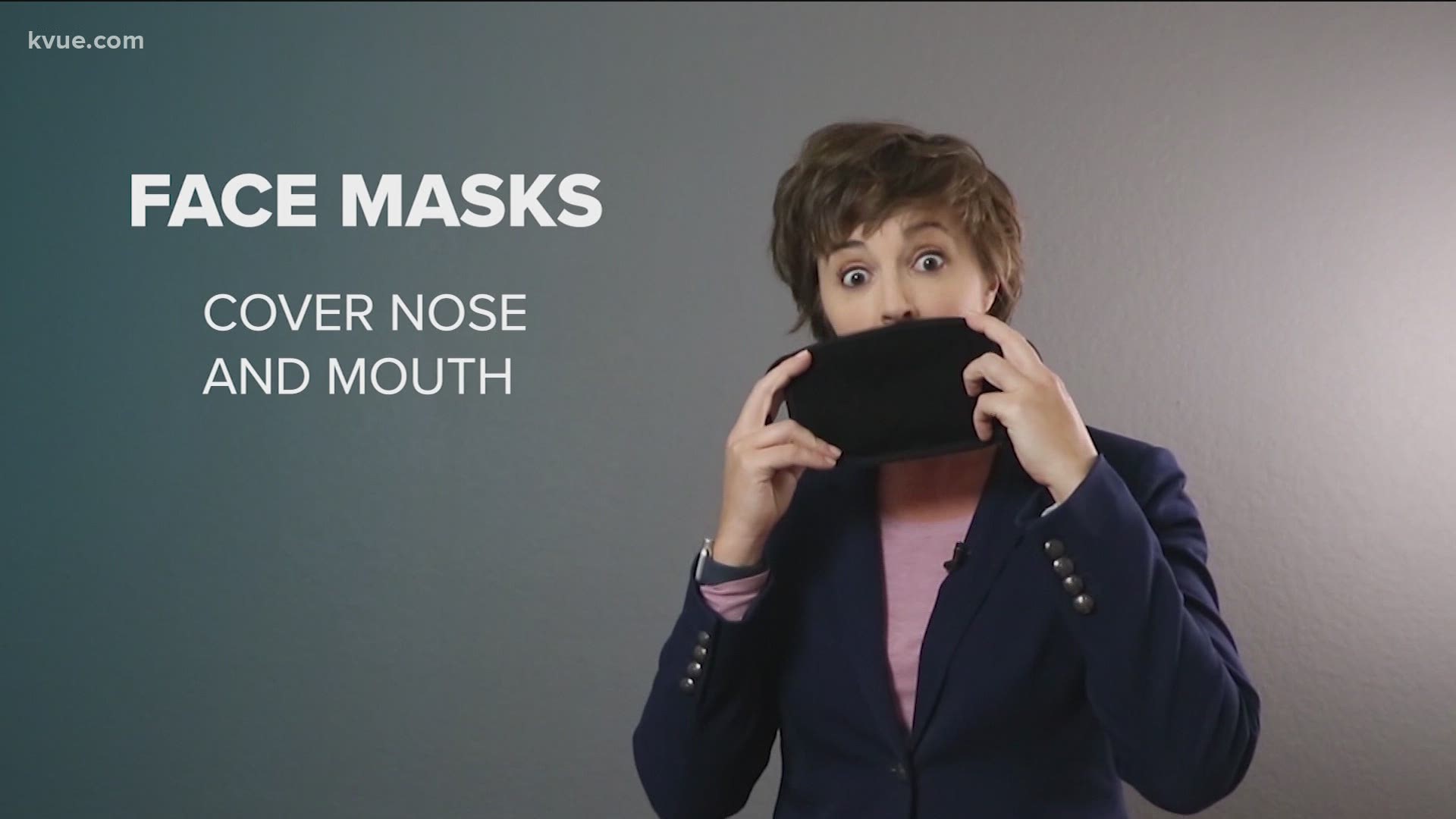AUSTIN, Texas —
The Centers for Disease Control and Prevention (CDC) gave more guidance Monday on the public’s use of cloth face masks in stopping the spread of COVID-19.
Doctors expressed the reason for cloth face masks is to stop the spread of COVID-19, and it’s not necessarily to protect someone from catching the virus.
“Remember, you're not wearing the cloth cover to protect yourself. You're wearing the cloth cover to protect other people,” said Dr. Michael Bell, deputy director, division of Healthcare Quality Promotion, at the CDC.
The CDC updated its guidance on cloth face coverings June 28 to include evidence for the effectiveness, who should and should not wear a mask, feasibility, as well as face shields, surgical masks and recent studies.
“We have both clinical [and] laboratory studies that show us that having a simple cloth barrier over your nose and mouth greatly reduces the amount of respiratory droplets that you produce when you speak. It also reduces the distance that those droplets are able to go if they do get out. So you're less likely to be an efficient transmitter to the people around you. For that reason, we recommend that you use a cloth face covering,” said Dr. Bell.
When it comes to the type of coverings from the public, Dr. Bell warned against masks with exhalation valves.
“The exhalation valve ... acts like a rifle barrel. It shoots air that you're breathing out directly at what you're facing. And that's exactly what we don't want,” said Bell.
Bell said a simple cloth fabric does well enough. The most important part is to cover the nose and mouth, and there's no need for extra filtration either.
“Certainly adding a little extra filtration may make you feel a little bit better, and may have some benefit. But if it's expensive? You're having a hard time breathing through it? I think you're better off using a mask without one,” said Dr. John Brooks, chief medical officer, COVID-19 response, at the CDC.
“The cloth coverings are simple barriers. They're there to block the sprays and droplets that you're producing when you speak. They're not necessarily intended to be filters,” said Dr. Bell.
Antiviral materials may work.
“There are antiviral products and there are certainly metals like silver and copper that are shown to inactivate viruses. There is nothing wrong with doing that as long as those treatments don't create problems for the person wearing the cover,” said Dr. Bell. “Remember that the effectiveness of the cloth face covering is not about inactivating specific viruses, but really containing the respiratory droplets.”
If you’re prone to acne, Dr. Bell said the type of material used can vary so long as it continues to absorb respiratory droplets.
“Any fabric combination, whether it's silk or cotton or synthetics that feels good against your face and blocks the droplets that you're breathing will be fine. Ideally, it's something that is launderable so that you can put it in the washing machine and then dry it in a nice hot dryer to sanitize it between uses,” said Dr. Bell.
PEOPLE ARE ALSO READING:

